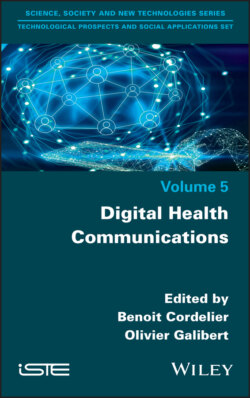Читать книгу Digital Health Communications - Группа авторов - Страница 17
P.6. Digital health communication: the promise of cognitive, social and emotional support
ОглавлениеThe massification of digital tools is therefore profoundly modifying the informational and communicational practices of patients and their caregivers. These practices seem to be deeply emotional, on the one hand, because of the need to be informed about our pathology or that of a loved one, to better understand the treatment and its side effects, and to grasp the issues at stake in terms of duration or hospital/outpatient care and, on the other hand, because of the need to share our experience and benefit from that of others in the face of a disease.
Work on online patient information modalities is still relevant, systematically reactivating the analysis of tensions and struggles for recognition between knowledge from the experience of care and knowledge from scientific and academic institutions. This is how Viviane Clavier highlights a form of unpreparedness on the part of healthcare professionals in the face of general questions related to current events asked by patients, which lead the specialist into non-specific answers for which she or he will have a form of natural distrust [CLA 19]. This is why health information is consulted, discussed, shared and produced by patients who are concerned about better understanding of the disease, its treatment and, above all, how daily life will be organized around it in the future. Marc Lemire encourages the academic community to consider with great interest this “heterodox knowledge” that resonates or competes with “biomedical knowledge” [LEM 09]. So-called lay knowledge, although it can compete with institutionalized biomedical hegemony in the context of a rebalanced patient–professional care relationship [ACK 10], nonetheless remains a fully-fledged informational and emotional resource for patients. As noted by Pierre Mignot and Dorsaf Omrane in their study of a digital breast cancer prevention dispositive, it is necessary to underline “the persuasive power of ‘knowledge from experience’ in the spaces of online exchanges between the people concerned” [MIG 18].
This new form of experiential expertise [PAG 14] constitutes, at a time when the expert patient is becoming a professional, a central subject of study that we will find in Chapters 7 and 8 of this book. This new cognitive and informational situation is also coupled with a significant social and emotional contribution. If the patient’s presence online is motivated by the need to be informed, it is also an opportunity to forge links with other patients who share a similar reality. This is how online social and emotional support [CHE 19] constitutes the other side of a digital community link whose social logic has yet to be widely explored in the health sector.
